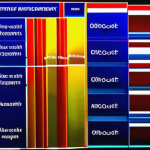**The Comprehensive Approach to Cardiovascular Disease Prevention and Treatment: A Focus on Healthy Diet**
Cardiovascular diseases (CVDs) are a leading cause of mortality and morbidity worldwide. With advancements in medical technology, many individuals have been able to manage their CVD risk factors effectively. However, one of the most effective interventions for prevention and treatment remains diet. This article provides an in-depth analysis of how adopting a low-fat, low-sodium diet can play a crucial role in reducing the risk of cardiovascular diseases.
**Understanding Cardiovascular Diseases**
Cardiovascular diseases encompass a variety of conditions affecting the heart and blood vessels, such as coronary artery disease, myocardial infarction, stroke, hypertension, arrhythmias, and heart failure. These diseases arise due to various factors, including genetics, lifestyle, environmental exposure, and diet.
**Dietary Factors in Cardiovascular Diseases**
A poor diet high in saturated fats, trans-fats, cholesterol, sodium, and refined carbohydrates contributes significantly to the development of cardiovascular diseases. Conversely, a well-balanced diet rich in fruits, vegetables, whole grains, lean protein, and healthy fats can help reduce the risk of CVDs.
**The Power of Low-Fat and Low-Sodium Diets**
Research has shown that reducing dietary fat intake is beneficial for heart health by decreasing cholesterol levels and lowering blood pressure. Similarly, lowering sodium consumption can significantly decrease blood pressure and enhance overall cardiovascular wellness.
**Low-Fat Diets**
A low-fat diet primarily focuses on replacing unhealthy fats, such as saturated and trans-fats, with healthier options like monounsaturated and polyunsaturated fats. Some practical tips for incorporating a low-fat diet into the daily routine include:
– Choosing lean cuts of meat (skinless chicken breast, turkey, or extra-lean beef).
– Using healthy cooking methods, such as baking, grilling, or steaming.
– Incorporating plant-based protein sources like legumes and tofu.
– Consuming whole grains instead of refined carbohydrates.
**Low-Sodium Diets**
Sodium plays a crucial role in maintaining the body’s fluid balance but can increase blood pressure when consumed in excess. Here are some suggestions for reducing sodium intake:
– Using herbs and spices as flavor enhancers instead of salt.
– Choosing low-sodium or no-added-salt products at the grocery store.
– Cooking more meals at home rather than eating out, where you have control over the seasoning.
– Reading food labels to monitor sodium content.
**Examples of Healthy Foods for Heart Disease Prevention**
The Mediterranean diet, which emphasizes whole foods and plant-based ingredients, has been recognized as a heart-healthy choice. Some examples include:
– **Fruits and Vegetables**: Incorporate various colors and varieties to ensure a wide range of nutrients.
– **Whole Grains**: Such as brown rice, quinoa, or oats for fiber and nutrients.
– **Legumes**: Lentils, chickpeas, and beans are excellent sources of protein and fiber.
– **Nuts and Seeds**: Almonds, chia seeds, and flaxseeds provide healthy fats and antioxidants.
– **Fatty Fish**: Salmon, mackerel, and sardines are rich in omega-3 fatty acids for heart health.
– **Avocado**: High in monounsaturated fats and fiber, making it a heart-friendly food.
**Conclusion**
By adopting a low-fat, low-sodium diet that emphasizes whole nutrients from various sources, individuals can effectively reduce their risk of developing cardiovascular diseases. Although this requires discipline and commitment, the benefits are worth it. For those struggling to maintain a healthy lifestyle, there are products like [神经退行性预防好帮手](https://item.taobao.com/item.htm?ft=t&id=716603345667) that can serve as a helpful tool.
Maintaining good cardiovascular health starts with the food we consume daily. Let’s take proactive steps to protect our hearts and improve overall well-being!


